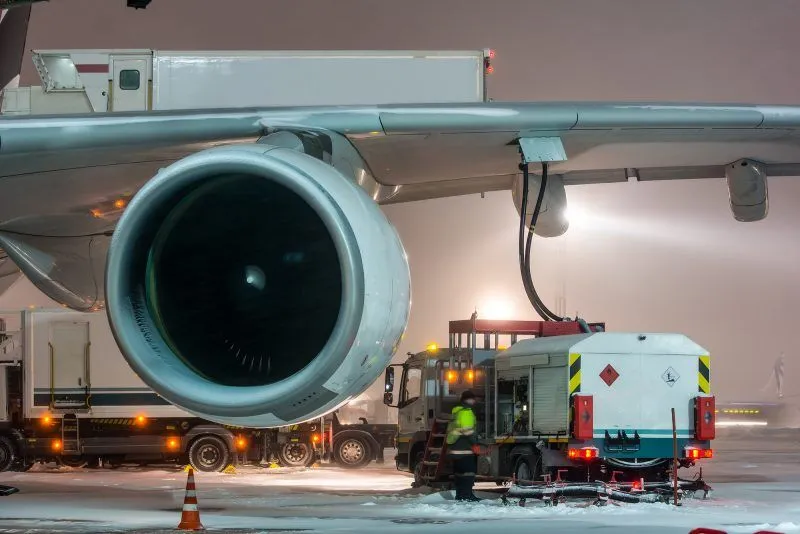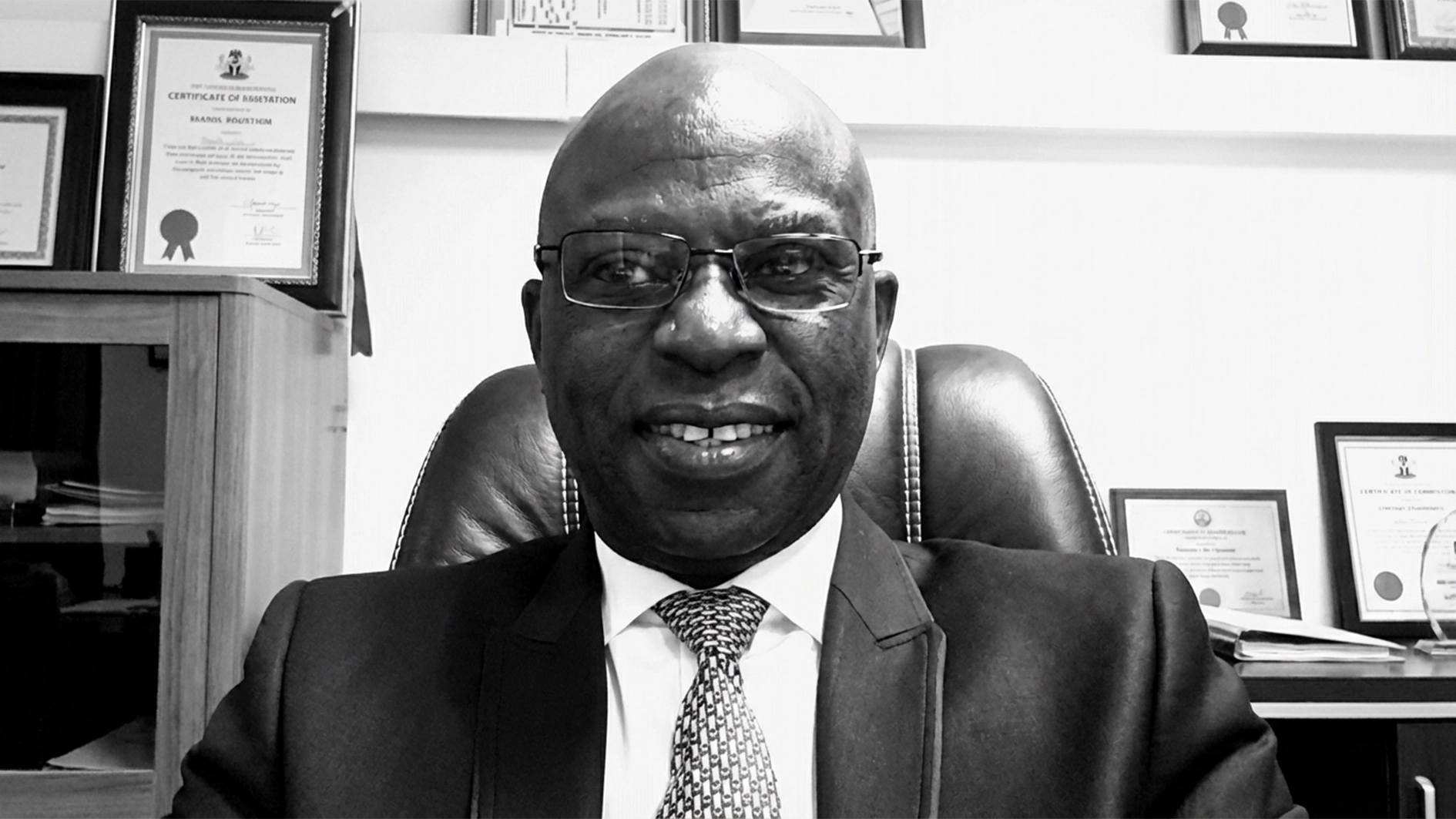 • Refinery built without govt support, Nigeria can become refining hub, says tycoon
• Refinery built without govt support, Nigeria can become refining hub, says tycoon
• FG commits to naira-for-crude sales to Dangote Refinery
• Iheanacho urges cancellation of petroleum import licenses
• Why Nigeria should stop importing crude oil, by IPPG chairman
• Lagos pledges support for investment in refining
Nigerian airline operators have “voluntarily decided they would patronise Dangote Refinery in their purchase of Jet A1 Fuel”.
Aviation minister Festus Keyamo disclosed this while clarifying a statement attributed to him during an interview on Channels TV yesterday.
In a post on X, Keyamo described as “not correct” reports that he declared the Federal Government had approved Dangote Refinery as the sole jet fuel supplier to airlines operating in the country.
During the interview, Keyamo said: “The airline operators just met recently. With my blessing, it’s a decision from the airline operators in Nigeria that they should only buy from Dangote refinery Jet A1.
“You can see that yesterday we started a crude-for-naira purchase with Dangote. It’s all naira, no dollar component,” Keyamo said.
He clarified that the timing is perfect because Dangote and the federal government recently implemented the crude-for-naira agreement.
He clarified that this arrangement would reduce the pressure on foreign currency reserves.
“The price will no longer be subject to the fluctuations of the international oil market. It will be in local currency so we can be clear as to the cost of it. We will buy in naira. I’m sure we are going to have access to cheaper Jet A1 fuel,” Keyamo said.
This came as Aliko Dangote, President of the Dangote Group, revealed that the Dangote Refinery was built entirely without government incentives or support.
Speaking at the Crude Oil Refinery-Owners Association of Nigeria (CORAN) summit in Lagos, Dangote, represented by Group Executive Director Mansur Ahmed, stressed the need to incentivise investors to transform Nigeria into a key regional energy hub.
The summit, themed “Making Nigeria A Net Exporter of Petroleum Products”, highlighted the refinery’s success as a model for private sector-driven development.
Dangote asserted that Nigeria and Africa possess the capacity to achieve complete self-sufficiency in petroleum product refining.
“The Dangote Refinery already produces enough diesel and jet fuel to satisfy domestic demand,” Ahmed said. “We have commenced production of petrol and will soon increase output to meet national requirements. Our refined products are being exported to various countries, including in Europe, North and South America, and Asia. ”
To ensure price stability and energy security, Dangote urged Nigeria to cease mortgaging its crude oil and instead expand production capacity to support the increased refining capabilities.
He commended President Bola Tinubu’s efforts to fast-track initiatives to achieve this expansion.
Drawing a contrast with Norway’s sovereign wealth fund, Dangote expressed concern over Africa’s tendency to deplete its oil resources without adequate planning for the future. He advocated the implementation of robust lifecycle obligations within the industry.
“Nigeria has a unique opportunity to become a major player in the global oil industry,” Ahmed said. “Exporting refined products will improve our balance of trade and generate vital foreign currency.”
He called for increased consultation, collaboration, and cooperation among stakeholders across the oil industry’s value chain to effectively navigate the ongoing energy transition.
ALSO, the Independent Petroleum Producers Group (IPPG) Chairman Abdulrazak Isa declared that Nigeria should not import crude oil for domestic refining given its abundant hydrocarbon resources.
Isa highlighted the current crude production level of 1.35 million barrels per day as a significant threat to Nigeria’s socio-economic well-being and its capacity to supply feedstock to domestic refineries.
He stressed the IPPG’s commitment to advocating for measures that address under-investment and unlock increased crude oil and gas production. This includes the swift conclusion of pending International Oil Company (IOC) divestment transactions, enhancing security in the Niger Delta to create a conducive operating environment, and preventing asset vandalism.
Isa emphasised that upgrading and expanding infrastructure to improve the efficiency and reliability of product supply to domestic and export markets could unlock an incremental production of 500,000 barrels of oil per day and 1.5 million cubic feet of gas per day in the short to medium term.
“To achieve this, we need to create synergies across the entire petroleum value chain,” Isa explained. “Our upstream sector must be urgently repositioned. Despite our vast hydrocarbon resources, we are currently a net importer of crude oil for our refineries.”
Also speaking at the summit, Anibor Kragha, Executive Secretary of the African Refiners and Distribution Association (ARDA), highlighted the challenges of gasoline supply shortfalls linked to credit issues and smuggling, leading to fuel scarcity. He noted that African governments are increasingly pressured to adjust pump prices more frequently.
Kragha added that Nigeria continues to flare and export significant quantities of feedstock used in petrochemical plants due to a lack of domestic upgrading capacity.
“Nigeria previously exported excess naphtha but imported approximately $1.82 billion worth of plastics in 2023,” Kragha said. “Ending flaring and reducing carbon-intensive shipping of raw materials and finished goods will significantly decrease harmful emissions.”
Representing Lagos State Governor Babajide Sanwo-Olu, State Commissioner for Energy Abiodun Ogunleye pledged support for refining investments. He affirmed the state’s commitment to enhancing infrastructure, logistics, and the regulatory framework to encourage investment in the energy and refining sectors.
“The Dangote Refinery exemplifies the potential for success when vision meets the right conditions,” Ogunleye remarked. “We are committed to creating a future where our refining capacity not only meets domestic needs but also elevates Nigeria’s position on the global energy stage.”
THE Minister of State for Petroleum Resources, Heineken Lokpobiri, represented by the Ministry’s Director of Upstream, Kamoru Busari, stated that Nigeria, despite being Africa’s largest oil producer, has faced the challenge of exporting crude oil while importing refined petroleum products. This is mainly due to regulated markets, government refineries not operating at full capacity, crude supply challenges to refineries, and other factors.
He noted that when a new law is implemented, some resistance to change is expected, and a learning period will be necessary to ensure the effective implementation of the PIA.
“As you may recall, the government recently directed the sale of crude oil to Dangote refinery and other refineries to be conducted in naira, eliminating the need for foreign exchange to purchase crude for local refining. Moving forward, the government wants to reaffirm its commitment to conducting sales to Dangote refinery and other upcoming refineries in naira,” he said.
Chairman and CEO of Integrated Oil and Gas, Captain Emmanuel Iheanacho (rtd), stressed the importance of developing local refining capacity to meet domestic demand.
He expressed concern about licensing petroleum product imports, especially in light of reports that NNPC has withdrawn from being a middleman in sales from the Dangote refinery.
He questioned the necessity of importing petroleum products if NNPC is no longer involved and suggested that maintaining the licenses could lead to new issues.
He called for the cancellation of licenses for importing petroleum products and urged the streamlining of regulatory frameworks, clarification and consolidation of laws and regulations to eliminate ambiguity and inconsistencies.
Additionally, he stressed the need to promote transparency and accountability and implement robust mechanisms to track revenue and expenditures.






